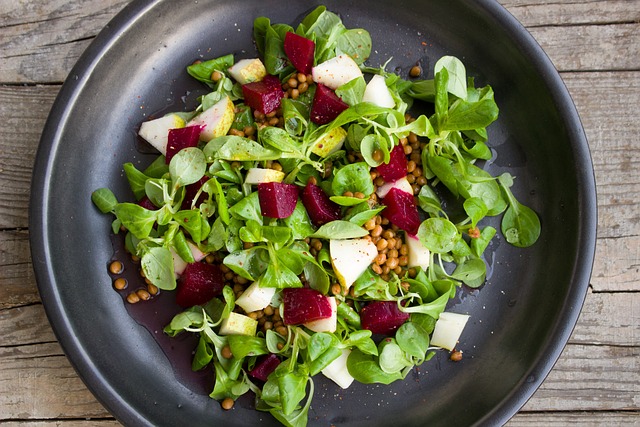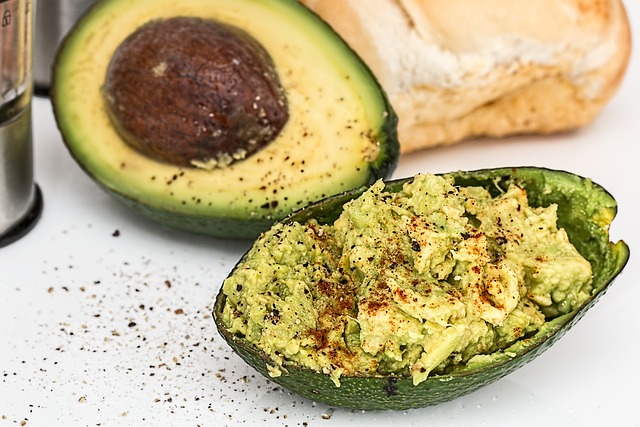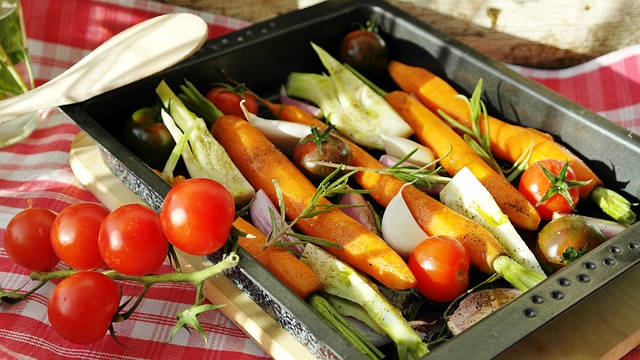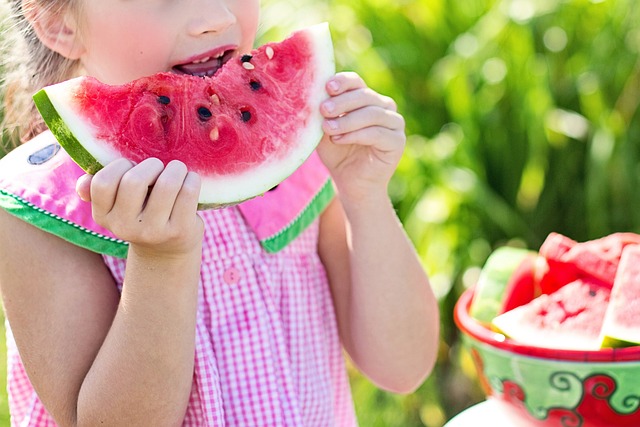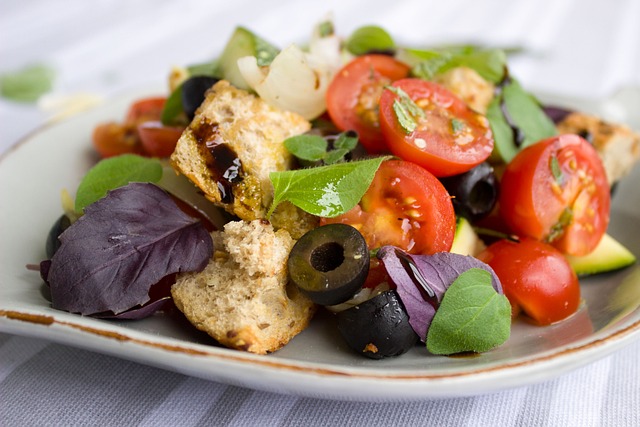Transitioning to a Vegan Diet as a Family: How-To Guide
Transitioning to a vegan diet as a family can have numerous benefits for both our health and the environment. By adopting a vegan lifestyle, we can improve our overall well-being while also reducing our carbon footprint. It’s not just about individual choices anymore; it’s about embracing veganism as a family and making a positive impact together.
In the next sections of this how-to guide, we will explore the basics of veganism, discuss ways to educate our family about plant-based nutrition, provide tips and tricks for meal planning, and address challenges and concerns that may arise during the transition. So let’s dive in and embark on this exciting journey towards a vegan lifestyle as a family.
Table of Contents
Understanding the Basics of Veganism
Veganism is a lifestyle that goes beyond just food choices. It is a way of living that seeks to avoid all forms of animal exploitation and cruelty. The core principle of veganism is to abstain from consuming animal products, including meat, dairy, eggs, and honey. By adopting a vegan diet, individuals are not only benefiting their health but also making a positive impact on the environment and animal welfare.
It is important to note the difference between veganism and vegetarianism. While vegetarians avoid consuming meat, vegans take it a step further by eliminating all animal-derived products. This means that as a vegan family, you will need to be conscious of your food choices, not just in terms of meat consumption but also dairy, eggs, and other animal by-products.
Transitioning to a vegan diet as a family may come with its own set of challenges and misconceptions. Some may worry about getting enough nutrients, particularly protein and calcium, without consuming animal products. However, it is essential to understand that a well-planned vegan diet can provide all the necessary nutrients for both children and adults. There are plant-based sources of protein, such as legumes, tofu, and tempeh, that can easily replace animal protein. Similarly, calcium-rich foods like leafy greens, nuts, and fortified plant-based milk can effectively substitute dairy products.
Furthermore, a common misconception about veganism is that it may be restrictive and limit food options. However, this couldn’t be further from the truth. Embracing a vegan lifestyle opens up a whole new world of flavors and cuisines. From vibrant salads bursting with color to hearty vegetable-based stews, there is a wide range of delicious and nutritious plant-based recipes to explore. By experimenting with different ingredients and flavors, you can introduce your family to a diverse and exciting menu.
By taking the time to understand the basics of veganism, you are laying a strong foundation for your family’s transition. From defining veganism and its principles to debunking misconceptions, you are equipping yourselves with the knowledge and confidence to embark on this journey together. Remember, the key is to approach this transition with an open mind, curiosity, and a willingness to discover the many benefits that a vegan lifestyle can bring.
Educating Your Family about Veganism
When transitioning to a vegan diet as a family, it is essential to educate everyone about the principles and benefits of veganism. Encouraging research and learning about plant-based nutrition can help your family understand the impact of their food choices on their health and the environment.
To deepen their understanding, it is worthwhile to recommend documentaries such as “Forks Over Knives” and “Cowspiracy,” which provide eye-opening insights into the benefits of a vegan lifestyle. Books such as “The China Study” and “Eating Animals” can also provide valuable knowledge about the ethical and health aspects of a vegan diet.
In addition to documentaries and books, there are plenty of online resources that offer valuable information and support for transitioning to a vegan lifestyle. Online blogs, websites, and forums can provide recipes, meal plans, and answers to common questions. Encourage your family to explore these resources and share their findings with each other.
Throughout the educational process, it is crucial to emphasize the importance of open-mindedness and understanding. Remind your family that transitioning to a vegan diet is a journey, and it is normal to have doubts and questions along the way. Encourage open discussions and allow everyone to voice their opinions and concerns. By fostering an environment of understanding, you can create a supportive atmosphere for your family’s transition to veganism.
Setting Realistic Goals and Expectations
When transitioning to a vegan diet as a family, it’s crucial to set realistic goals and expectations. Gradual transition is key to ensuring a smooth and sustainable shift towards a vegan lifestyle. Rather than completely eliminating animal products overnight, take small steps towards reducing their consumption. This approach allows everyone in the family to adjust at their own pace while minimizing feelings of deprivation or restriction.
One helpful tip for gradually eliminating animal products from meals is to start with meatless Mondays. Designate one day of the week to explore plant-based meals together as a family. This not only introduces new flavors and recipes but also helps to create a sense of excitement and curiosity around veganism. As everyone becomes more comfortable, you can gradually increase the number of meatless days throughout the week.
Another effective strategy is to find alternatives and substitutions for popular non-vegan ingredients. For example, instead of using dairy milk, opt for plant-based milk alternatives such as almond, soy, or oat milk. Replace eggs with ingredients like mashed bananas or applesauce in baking recipes. Additionally, there are many plant-based meat substitutes available in stores that can be used as alternatives in your favorite family recipes.
It’s important to remember that mistakes and setbacks are normal during this transition. Don’t be too hard on yourselves or each other if you occasionally slip up and consume animal products. Allow room for learning and growing together as a family. The journey towards a vegan diet is a process, and it’s important to celebrate every small achievement along the way.
By setting realistic goals, gradually eliminating animal products, and finding alternatives for non-vegan ingredients, your family can navigate the transition to a vegan diet with ease. Remember, the most important aspect is to embrace this shift as a family, supporting and encouraging each other throughout the process. Together, you can experience the numerous benefits of a vegan lifestyle and create a positive impact on your health and the environment.
Meal Planning as a Family
Meal planning plays a crucial role in transitioning to a vegan diet as a family. By carefully planning and preparing meals, you can ensure that your family adopts a well-balanced and nutritious plant-based diet. It also allows you to involve every family member in the process, making it a collaborative and enjoyable experience.
Explaining the significance of meal planning in a vegan diet: Meal planning helps to ensure that your family’s nutritional needs are met while following a vegan diet. It allows you to carefully select a variety of plant-based foods that provide essential vitamins, minerals, and proteins. By planning ahead, you can avoid relying on processed or convenience foods, and instead, prioritize nutrient-rich whole foods.
Discussing the benefits of involving the entire family in meal planning: Involving the whole family in meal planning fosters a sense of ownership and engagement. It allows everyone to contribute their preferences and encourages exploration of new ingredients and flavors. By involving children in the process, you can educate them about the importance of a healthy and sustainable diet, setting them up for a lifetime of good eating habits.
Providing ideas and recipes for vegan family meals: The internet offers a treasure trove of vegan recipe ideas and resources. You can find a multitude of websites, blogs, and cookbooks dedicated to vegan cooking, making it easy to find delicious and nutritious meal ideas. From hearty grain bowls and colorful salads to comforting stews and hearty lasagnas, there are endless options to explore and enjoy.
To get started, consider incorporating more vegetables, legumes, whole grains, and plant-based proteins into your family’s meals. Experiment with different cooking methods and flavor combinations to keep things interesting. Don’t be afraid to try new ingredients and step out of your comfort zone. Additionally, taking advantage of seasonal produce can add variety and freshness to your meals.
Making a transition to a vegan diet as a family can be an exciting journey. By involving everyone in the meal planning process, you can create a strong foundation for a sustainable and health-conscious lifestyle. Remember, meal planning is not only about nutrition, but also about fostering togetherness and creating memorable experiences as a family.
Incorporating Fun and Variety into Vegan Meals
When transitioning to a vegan diet as a family, it’s important to incorporate fun and variety into your meals. Encouraging experimentation with new ingredients and flavors can help make the transition more exciting and enjoyable for everyone. By exploring a wide range of plant-based options, you can discover delicious and nutritious meals that the whole family will love.
One of the wonderful aspects of veganism is the diversity and versatility of plant-based cuisine. There are countless plant-based ingredients and cooking techniques to explore, allowing you to create a wide array of flavors and textures in your meals. By experimenting with different herbs, spices, and cooking methods, you can transform even the most basic ingredients into delectable dishes.
When introducing veganism to children, it is essential to highlight the benefits of a wide range of plant-based foods. By exposing them to a variety of fruits, vegetables, legumes, grains, and nuts, you are not only expanding their palate but also providing them with essential nutrients. Showcasing the deliciousness of plant-based meals can help dispel any preconceived notions that vegan food is boring or bland.
Exploring new recipes and cuisines as a family can be a wonderful bonding experience. Involving children in meal preparation and decision-making can help foster a sense of ownership and excitement about the meals they eat. Encourage everyone in the family to share their favorite plant-based recipes or suggest new dishes they would like to try. This way, mealtime becomes an opportunity for creativity and collaboration.
By incorporating fun and variety into your vegan meals, you can make the transition to a vegan diet as a family a joyful and fulfilling experience. Embrace the endless possibilities of plant-based ingredients, experiment with different flavors and textures, and introduce your children to the wonderful world of plant-based foods. Remember, the journey towards a vegan lifestyle is not only about the health and environmental benefits but also about creating a positive and enjoyable experience for the whole family.
Overcoming Challenges and Addressing Concerns
Transitioning to a vegan diet as a family may seem daunting at first, but it is important to address common challenges and concerns that may arise during the transition. One common challenge is the resistance from family members who may be hesitant to give up their favorite non-vegan foods. It is essential to approach this with understanding and empathy.
A key solution is to provide education and support to address any concerns or misconceptions. By explaining the benefits of a vegan diet for both health and the environment, you can help your family members understand the importance of making this change. Additionally, suggesting documentaries, books, and online resources that promote plant-based nutrition can provide further information and help dispel any doubts.
Open communication is crucial in navigating these challenges. Encouraging your family members to voice their concerns and being receptive to their opinions can help create a supportive environment. It is also important to find compromises that work for everyone. For example, you can gradually eliminate animal products from meals and explore alternative ingredients and substitutes for popular non-vegan ingredients.
Another challenge you may face is dining out or traveling as a vegan family. However, there are ways to overcome these challenges and still enjoy these experiences. Researching and finding vegan-friendly restaurants or options in advance can make dining out easier. Planning ahead and bringing snacks or meals for travel can also ensure that you have vegan options available.
In conclusion, transitioning to a vegan diet as a family may have its challenges and concerns, but by addressing them head-on and finding solutions, you can make the process smoother. By providing education and support, encouraging open communication, and finding compromises, you can navigate the transition together. Remember, this journey towards a vegan lifestyle is not only beneficial for your health and the environment but also an opportunity to strengthen your bond as a family.
Dining Out and Traveling as a Vegan Family
When transitioning to a vegan diet as a family, dining out and traveling can sometimes present challenges. However, with a little preparation and knowledge, it is entirely possible to enjoy eating out and traveling while adhering to a vegan lifestyle. Here are some tips and strategies to make dining out and traveling as a vegan family a smooth and enjoyable experience.
Finding vegan-friendly restaurants is easier than ever before. Many cities now have a growing number of vegan and vegetarian eateries, making it simple to find a place that caters to a plant-based diet. Utilize online resources, such as vegan restaurant directories and apps, to discover vegan-friendly options in your area or where you are traveling. Additionally, don’t be afraid to reach out to local vegan communities for recommendations or join online groups where fellow vegans share their favorite restaurant discoveries.
Navigating social situations and family gatherings can sometimes be tricky as a vegan family. Communicating your dietary preferences ahead of time and offering to bring a vegan dish to share can help ease any potential discomfort. By providing your own delicious and plant-based contribution, you are not only showcasing the variety and tastiness of vegan food but also ensuring that you have something substantial to enjoy during the event. Remember to approach social situations with an open mind and a positive attitude, as it can create an opportunity for education and awareness about veganism.
Traveling as a vegan family may require a little extra planning, especially when visiting unfamiliar destinations. Before embarking on your trip, research local vegan-friendly establishments in the area you will be staying. Create a list of options for dining out and even grocery stores where you can stock up on plant-based essentials. Packing some vegan snacks and light meals for the journey can also help ensure that you have options while on the road or in transit.
When exploring new places, don’t be afraid to ask for vegan modifications at restaurants or request local dishes that can be easily made plant-based. Additionally, consider booking accommodations with kitchen facilities to have the freedom of preparing your own meals if dining out becomes challenging.
Overall, dining out and traveling as a vegan family can be an exciting adventure. By researching vegan-friendly options, communicating your needs in advance, and being prepared with snacks and meal ideas, you can enjoy exploring new culinary experiences while staying true to your values. Remember, the vegan community is vast and supportive, so don’t hesitate to seek tips and advice from other like-minded individuals. Happy dining and safe travels!
Seeking Support from Vegan Communities
When transitioning to a vegan diet as a family, it is crucial to seek support from vegan communities. Connecting with like-minded individuals who share similar values and goals can provide guidance, inspiration, and a sense of belonging.
There are various ways to find support within vegan communities. Joining vegan groups, whether online or in-person, can be incredibly helpful. These groups often offer a wealth of knowledge and experience, allowing you to learn from others who have already embarked on a similar journey.
Forums dedicated to veganism are another valuable resource. Here, you can engage in discussions, ask questions, and exchange ideas with individuals who have a deep understanding of veganism. These forums provide a platform for sharing experiences and seeking advice, especially when facing challenges or uncertainties during your transition.
Additionally, following vegan social media accounts can offer daily inspiration and motivation. Many vegan influencers share recipes, tips, and personal stories related to their vegan journey. By following these accounts, you can stay connected with the vegan community and gain insights into creative ways to incorporate plant-based foods into your family’s diet.
It is essential to emphasize the importance of staying connected with like-minded individuals. Surrounding yourself with supportive individuals who share your values can help maintain your motivation and provide a sense of solidarity. By interacting with others who have similar goals, you can share tips, successes, and even setbacks, creating a strong support system to lean on.
In conclusion, seeking support from vegan communities is crucial when transitioning to a vegan diet as a family. By connecting with like-minded individuals through vegan groups, forums, and social media accounts, you can find guidance, inspiration, and a sense of community. Remember, you are not alone on this journey, and there are countless individuals ready to support you and your family every step of the way.
Conclusion
In conclusion, transitioning to a vegan diet as a family can bring numerous benefits, not only to our health but also to the environment. By embracing veganism together, we can promote a more sustainable way of living and demonstrate to our children the importance of making conscious choices for the planet.
Throughout this guide, we have learned the basics of veganism and the core principles it entails. We have also addressed common misconceptions and challenges that may arise during the transition, emphasizing the need for open-mindedness and understanding.
Education plays a crucial role in this process, and we have provided various resources such as documentaries, books, and online materials for further research. By educating ourselves and our family members about plant-based nutrition, we can ensure that we meet our dietary needs in a healthy and balanced way.
Setting realistic goals and expectations is essential when transitioning to a vegan diet. Taking gradual steps and gradually eliminating animal products from meals can make the process more manageable. We have also shared alternatives and substitutions for popular non-vegan ingredients, allowing families to continue enjoying their favorite dishes in a vegan-friendly way.
Meal planning as a family brings everyone together and ensures that everyone’s preferences and needs are taken into account. We have discussed the significance of meal planning and provided ideas and recipes for delicious vegan family meals. Encouraging experimentation with new ingredients and flavors can add fun and variety to our meals, making the transition more enjoyable for everyone.
Challenges and concerns are bound to arise during the transition, but we have offered solutions and support to overcome them. Open communication and finding compromises within the family are crucial in addressing resistance and nurturing a supportive environment for everyone involved.
When dining out or traveling as a vegan family, we have provided tips and strategies for finding vegan-friendly restaurants and navigating social situations. It is important to remain adaptable and resourceful while staying true to our values.
Finally, seeking support from vegan communities can greatly enhance our journey. We have recommended vegan groups, forums, and social media accounts for guidance and inspiration. Engaging with like-minded individuals allows us to share experiences, learn from each other, and stay connected on this transformative path.
In summary, transitioning to a vegan diet as a family is a powerful way to make a positive impact on our health, the environment, and the well-being of animals. We encourage you to embark on this journey with your loved ones, embracing a vegan lifestyle and creating a healthier and more compassionate world together.

